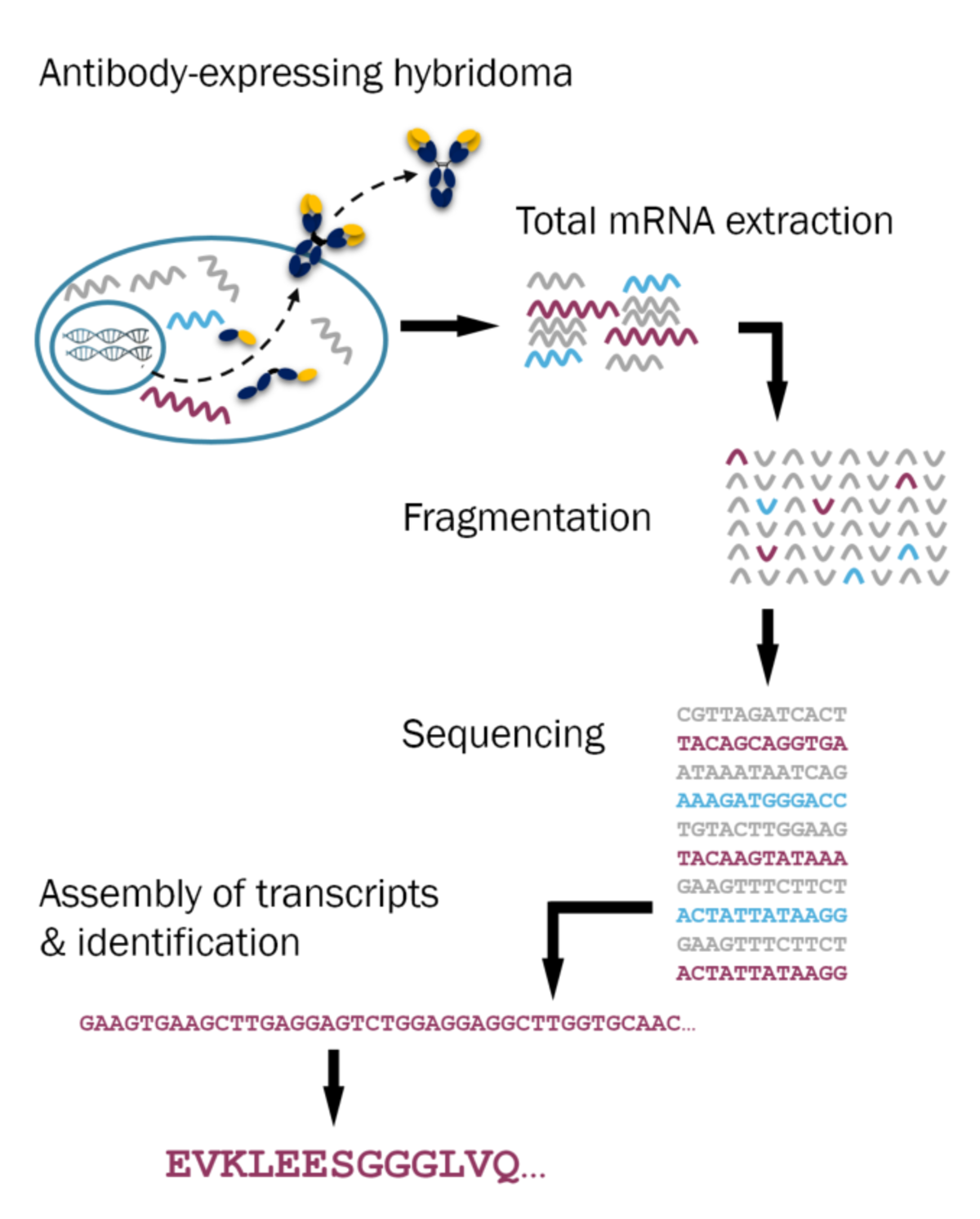Recombinant antibodies offer several advantages over conventional monoclonal and polyclonal antibodies, and are seeing increased use for scientific research. Critically, because the antibody sequence is known, recombinant antibodies safeguard experimental reproducibility and provide opportunities for engineering.
What are recombinant antibodies?
In its simplest form, the term recombinant antibody is used to describe any antibody produced using recombinant methods. One such approach is phage display, whereby phages expressing different antibody single-chain variable fragments (scFvs) are incubated with a surface-bound antigen before any unbound phages are washed away. The bound, antigen-specific phages are then eluted and amplified in E. coli for assessment via techniques such as ELISA, with additional rounds of panning being used to identify the highest affinity binders. Recombinant antibodies can also be produced by sequencing and expressing existing monoclonals and polyclonals. Ultimately, recombinant antibodies are defined by the fact that they are manufactured using a DNA template of known sequence.
How do you obtain the sequence of an antibody?
Antibody sequence databases such as the AntiBodies Chemically Defined (ABCD) database can be useful places to start for researchers wishing to obtain the sequence of an antibody. These hold sequence information for a growing number of commercial and literature-cited antibodies and aim to promote the wider use of recombinant antibodies for research.
When the antibody sequence is not publicly available, sequencing must be performed. This is typically achieved in one of two ways. The first of these, hybridoma sequencing, requires that the cell line for the monoclonal antibody of interest be available. By extracting the total mRNA content from the cells and sequencing the cDNA encoding the antibody variable heavy (VH) and variable light (VL) domains, it is possible to obtain the hybridoma’s antibody-coding sequences as well as detect any heterogenicity. Using this method, Absolute Antibody has sequenced over 2’300 hybridomas in the last two years.
Alternatively, when the cell line cannot be acquired, de novo antibody sequencing uses a combination of mass spectrometry and bioinformatics to analyze the antibody itself. This strategy is employed by Rapid Novor for sequencing both monoclonal and polyclonal antibodies (using REmAb® and REpAb® technology, respectively) and is applicable to all types of antibodies, including IgA, IgM, and ScFv.
Once the sequence is known, the antibody can be produced in an expression host such as human embryonic kidney (HEK) or Chinese hamster ovary (CHO) cells before being purified for use in downstream applications. Mammalian expression hosts are favored over alternatives such as bacteria for their better replication of mammalian post-translational modifications and protein folding. For example, bacteria often struggle to form the disulfide bonds essential for antibody structure.

What are some applications of recombinant antibodies?
A main use of recombinant antibodies is as tools for established research techniques such as ELISA, flow cytometry, and immunohistochemistry (IHC). Here, recombinant antibodies offer the benefits of improved experimental reproducibility and consistent long-term supply, as well as eliminate the use of animals for antibody production. However, there are many other reasons for using recombinant antibodies, including:
- Hybridoma loss prevention
Hybridoma cell lines can easily be lost due to factors such as improper handling, contamination, or compromised cryogenic storage. They are also prone to genetic drift and frequently express additional functional variable regions, which can lead to experimental variability over time. Knowing the antibody sequence safeguards against irretrievable antibody loss and can also be useful for antibody validation purposes.
- Antibody engineering
Recombinant antibodies offer a wealth of opportunities for engineering. For example, changing the antibody constant region to a different isotype can increase flexibility for flow cytometry panel design, while species-switching has widespread utility for reducing unwanted immunogenicity during in vivo studies. Other engineering applications include modulation of antibody binding and the development of nanobodies or bispecific antibodies.
- In vitro diagnostics (IVD) applications
IVD tests like lateral flow immunoassay, ELISA, and IHC use antibodies to confirm the presence of an infection or determine an appropriate treatment regime, making them subject to strict regulatory requirements for assuring patient safety. Because recombinant antibodies are highly characterized, demonstrate consistent performance, and are available in uninterrupted supply, they are often preferred components of IVD tests.
- Therapeutic uses
Recombinant antibodies have broad utility for therapeutic applications. They represent approved drugs for conditions including cancer (e.g., Bevacizumab), Crohn’s disease (e.g., Infliximab), and systemic lupus erythematosus (e.g., Belimumab), where they often function by blocking specific cellular processes or providing targeted drug delivery when configured as antibody-drug conjugates. Bi- and tri-specific antibodies (which respectively recognize two or three targets) are being investigated for their capacity to boost immune responses.
LubioScience represents some of the most trusted brands in research and works closely with experts in antibody sequencing and recombinant expression, including Absolute Antibody and Rapid Novor. Contact us today to learn how we can support your project.
Suppliers

Absolute Antibody - Recombinant engineered antibodies
Absolute Antibody is an expert in engineering recombinant antibodies for in vivo research. Their custom services include hybridoma sequencing, antibody engineering and expression.

Rapid Novor - Antibody and Protein Sequencing Services
Our antibody sequencing services can determine the amino acid sequence of monoclonal or polyclonal antibodies with our proprietary high-throughput, full coverage de novo antibody sequencing technology.


